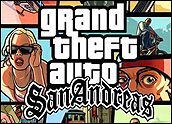
The Federal Trade Commission (FTC) reported on Friday that a settlement has been reached with the companies behind the popular video game “Grand Theft Auto: San Andreas,” Take-Two Interactive (NYSE: TTWO) and subsidiary Rockstar Games, which were sued for deceptive practices over hidden sexual content in the game.
The companies originally denied incorporating into the game the explicit content, which was unlocked by a program called Hot Coffee that was available on the Internet and made possible on gaming consoles with “mods” and “cheats” popular among gamers.
However, the development of the code behind the hidden sexual part of the game, a best-seller on all platforms, was tracked back to Take-Two and Rockstar, which were forced to shell out almost US$25 million to re-rate and re-release the game without the Coffee code.
“We allege that Take-Two and Rockstar’s actions undermined the industry’s own rating system and deceived consumers,” said FTC Bureau of Consumer Protection Director Lydia Parnes.
Time to Grow Up
The FTC action highlights an evolving gaming industry that may be forced to shed its immaturity and the kind of stunts that the Hot Coffee code represented, Gartner research director Michael King told TechNewsWorld.
“The video game industry has been immature, and never had to worry about regulation,” King said. “They could slip things in and it was a nod to the industry that, ‘We’re playing games.'”
Now, however, the maturing of the marketplace is pretty clear, and the FTC and lawmakers, or as King put it, “Big Brother,” is watching.
“The industry is big enough that now we have regulation,” he said.
Racier Ratings
The FTC chastised the game companies for deceiving parents and the market, charged them with corrupting the Entertainment Software Rating Board (ESRB) rating system, and warned of the penalties, $11,000 per violation, if the company does not comply with reporting and game ratings requirements.
However, Take-Two once again ran afoul of ESRB ratings more recently when its title, “The Elder Scrolls IV: Oblivion” was re-rated from Teen to Mature, with the board alleging Take-Two downplayed both violence, and sexual content — which was once again unlocked with additional code — with its rating request.
As part of the “GTA: San Andreas” case settlement, Take-Two and Rockstar agreed to establish and implement a system to ensure all content in a video game is considered and reviewed before a game is submitted for rating.
Irreverent Industry
The “Oblivion” move might sound like repeating the same mistake, but as Gartner’s King pointed out, the gaming industry is different.
“I wouldn’t be surprised if they were hiding stuff as a way to thumb their nose at the people they feel are regulating them,” King speculated. “In gaming, that kind of irreverence holds cachet.”
King added all indications are that the next “GTA” release this fall will be “pretty huge,” and he does not think the Hot Coffee controversy or recent industry sales slump will negatively impact game companies.
“Realistically, with this industry experiencing such rapid growth, I don’t think it’s going to hurt them,” he said.
Titles Take a Hit
However, Take-Two failed to impress Wall Street with disappointing financial results in a recent second-quarter earnings report, including $24.3 million in charges for the write-off of several titles in development, and another $2 million for closing two development studios.
“Responding to the current difficult business environment and market conditions, the company has taken steps to reduce costs, resulting in asset write-offs and studio closings,” said a Take-Two statement blaming weak retail sales and a high bar set by “GTA: San Andreas” last year.
While it did forecast a return to profitability in the fourth quarter of this year, Take-Two also signaled additional charges of $3 million to close a third development studio, and another $3 million to move its headquarters out of New York to Geneva.





















































